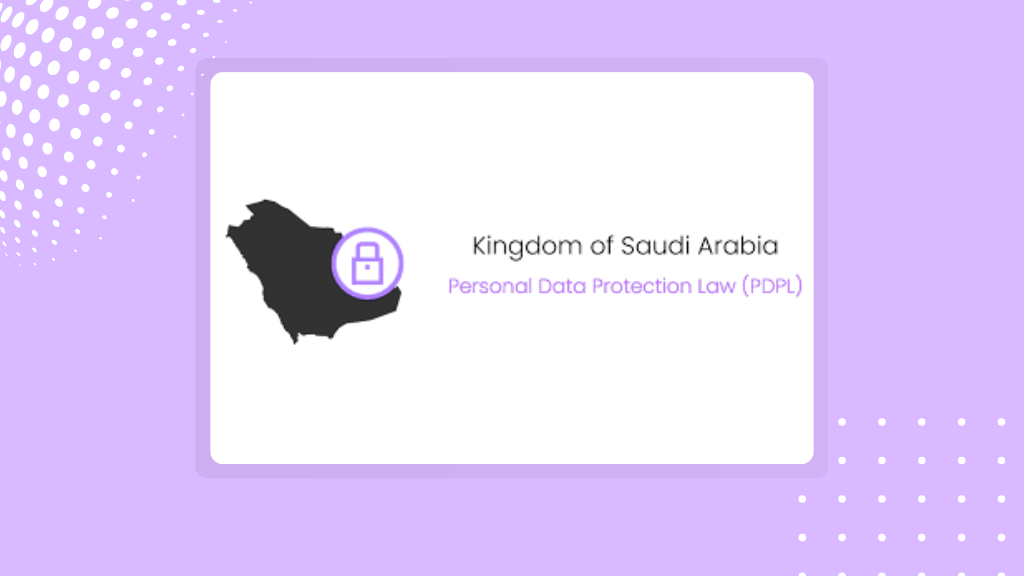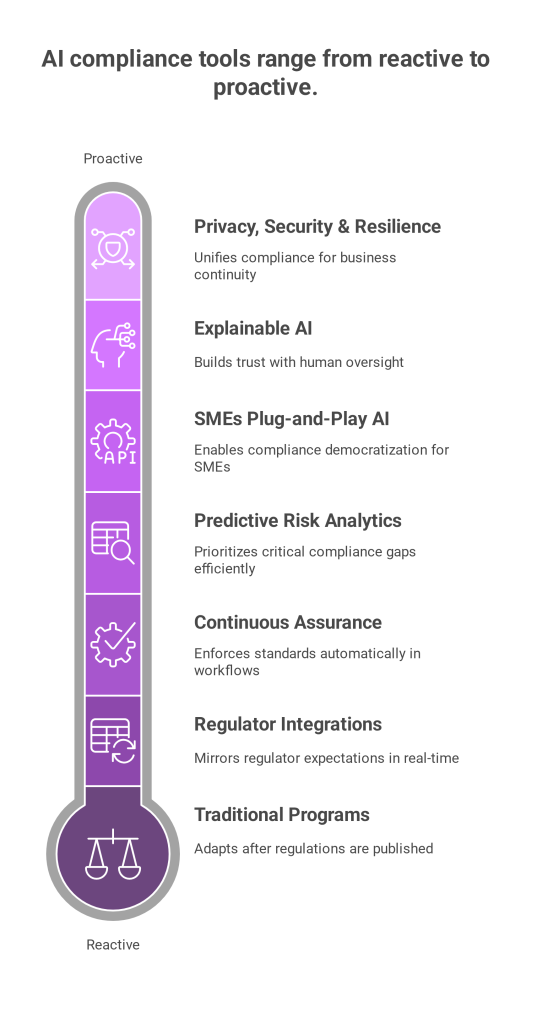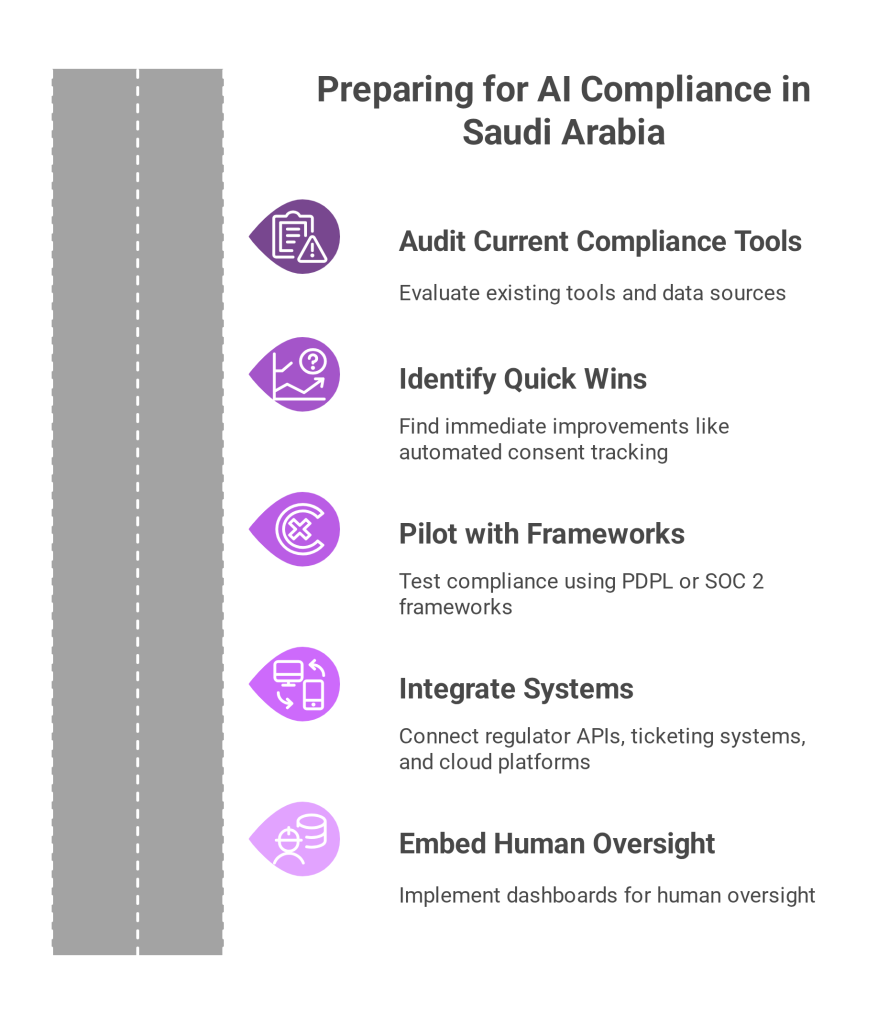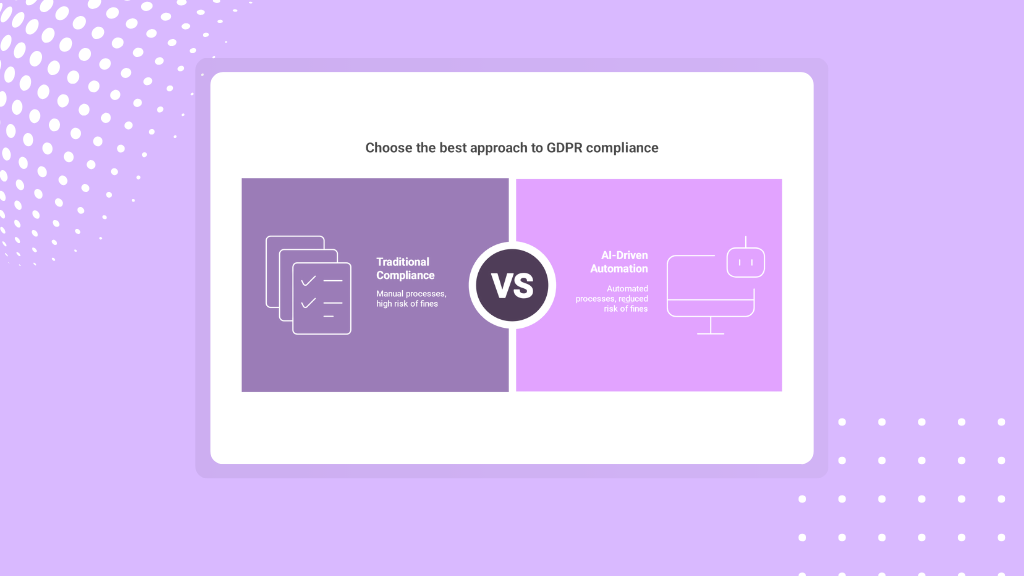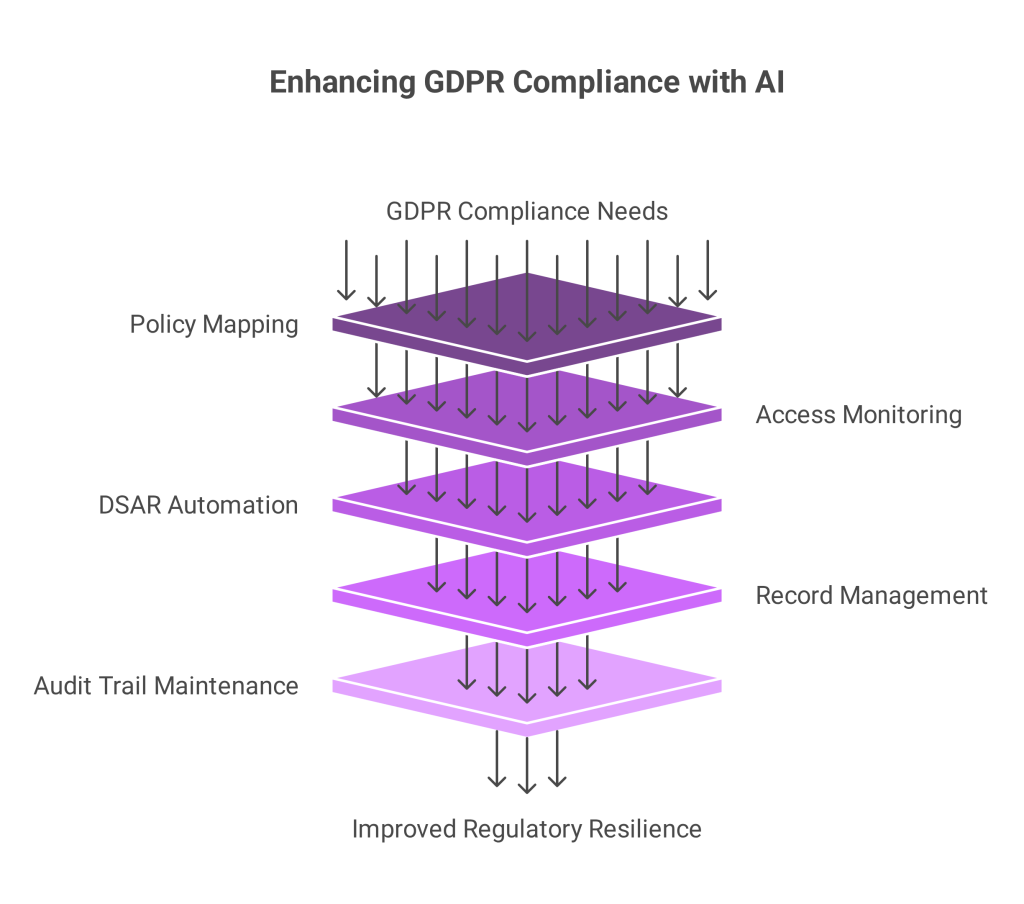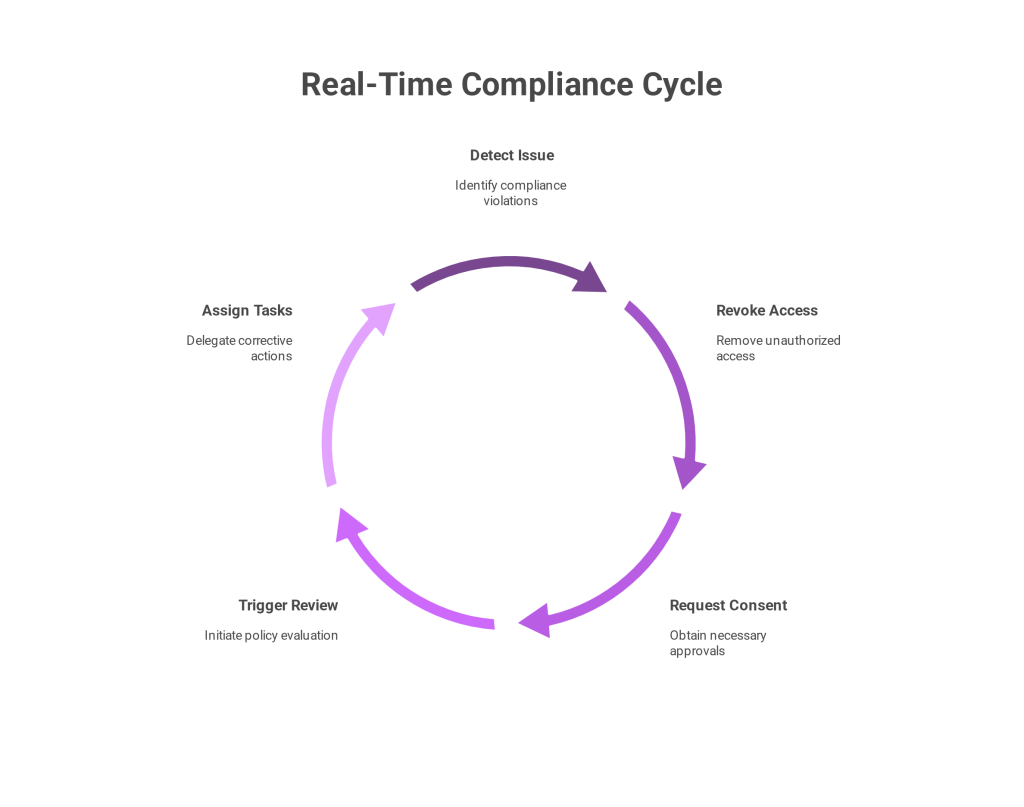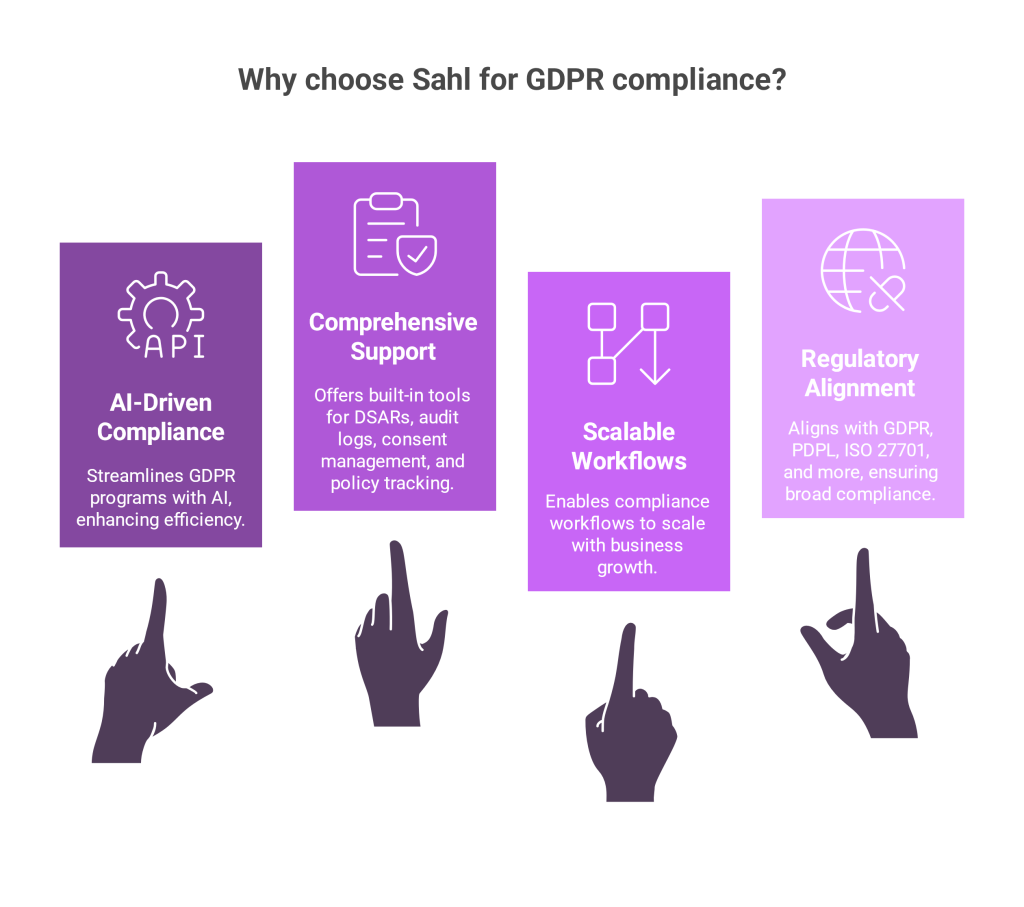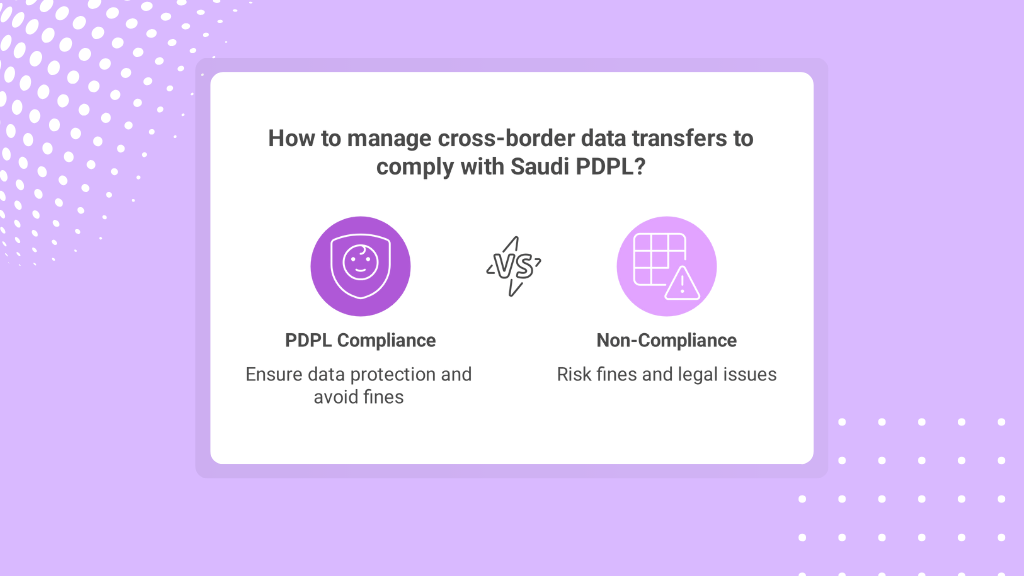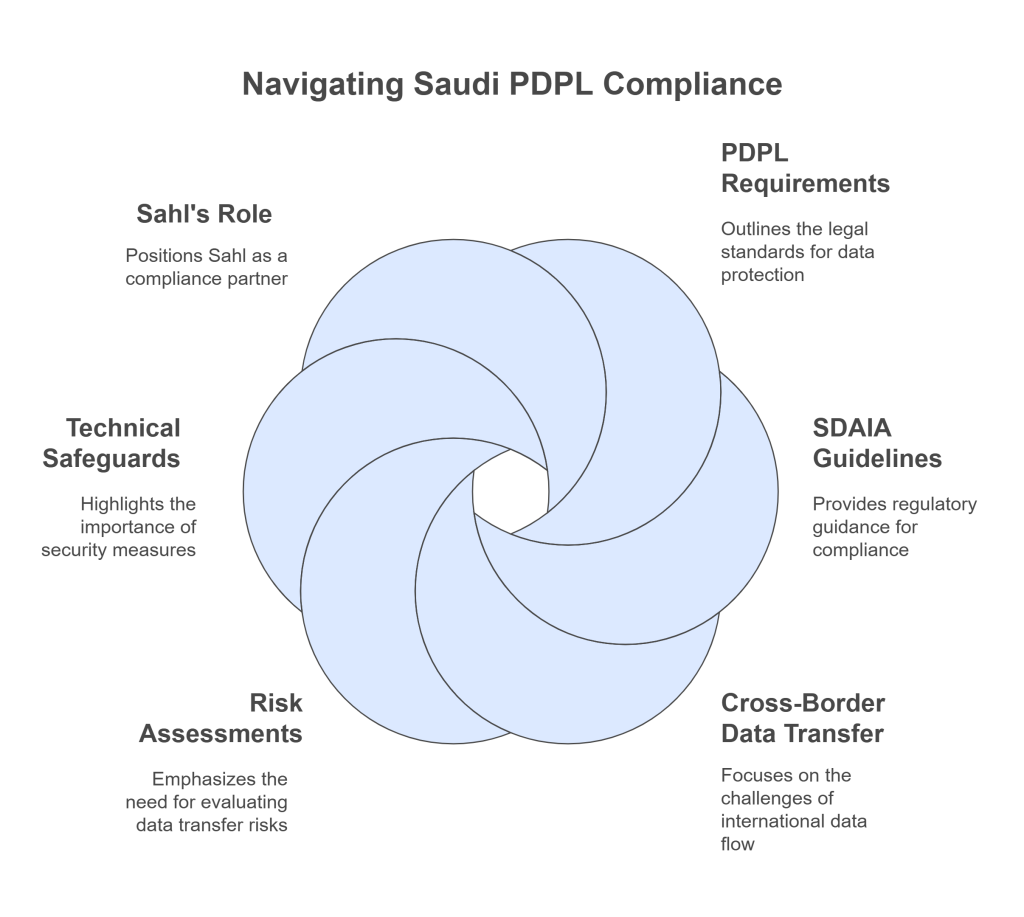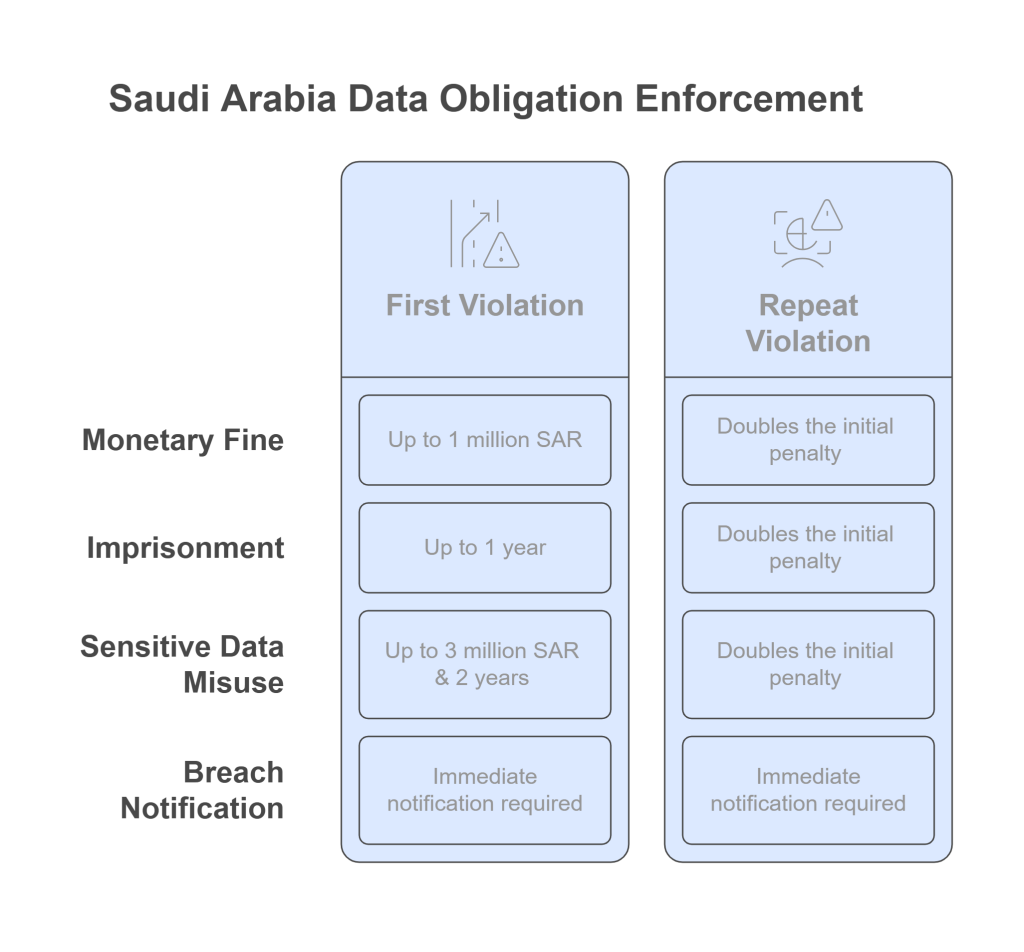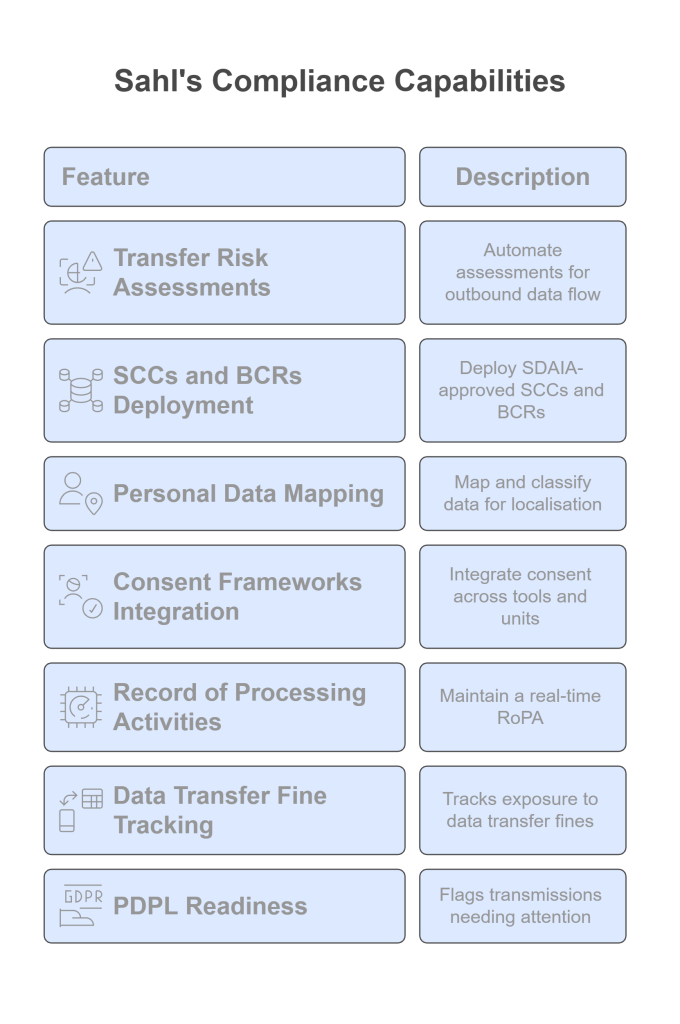PDPL automation in Saudi Arabia is becoming a game-changer for businesses navigating the region’s fast-evolving regulatory landscape. With the Personal Data Protection Law (PDPL) fully enforced since September 2024, organizations are under pressure to modernize how they manage data privacy, cross-border transfers, and audit-readiness. As Vision 2030 accelerates digital growth, automating compliance is now essential to staying competitive and secure in the Kingdom.
What PDPL Automation in Saudi Arabia Means for Businesses
The Saudi data protection law, supervised by the Saudi Data and Artificial Intelligence Authority (SDAIA), governs all personal data processing activities within the Kingdom and even extends to organisations based abroad if they handle the data of Saudi residents. Inspired by global standards like the GDPR, the PDPL mandates lawful, transparent, and purpose-specific data processing practices.
Key principles include:
- Consent-first approach: explicit consent is mandatory before collecting or processing personal data.
- Purpose limitation and minimisation: Only data essential for a specified purpose may be collected.
- Retention control: Personal data must be destroyed once it is no longer needed unless legal grounds require otherwise.
Understanding Saudi PDPL in 2025 is not optional. It is central to operational viability for both domestic and international companies.
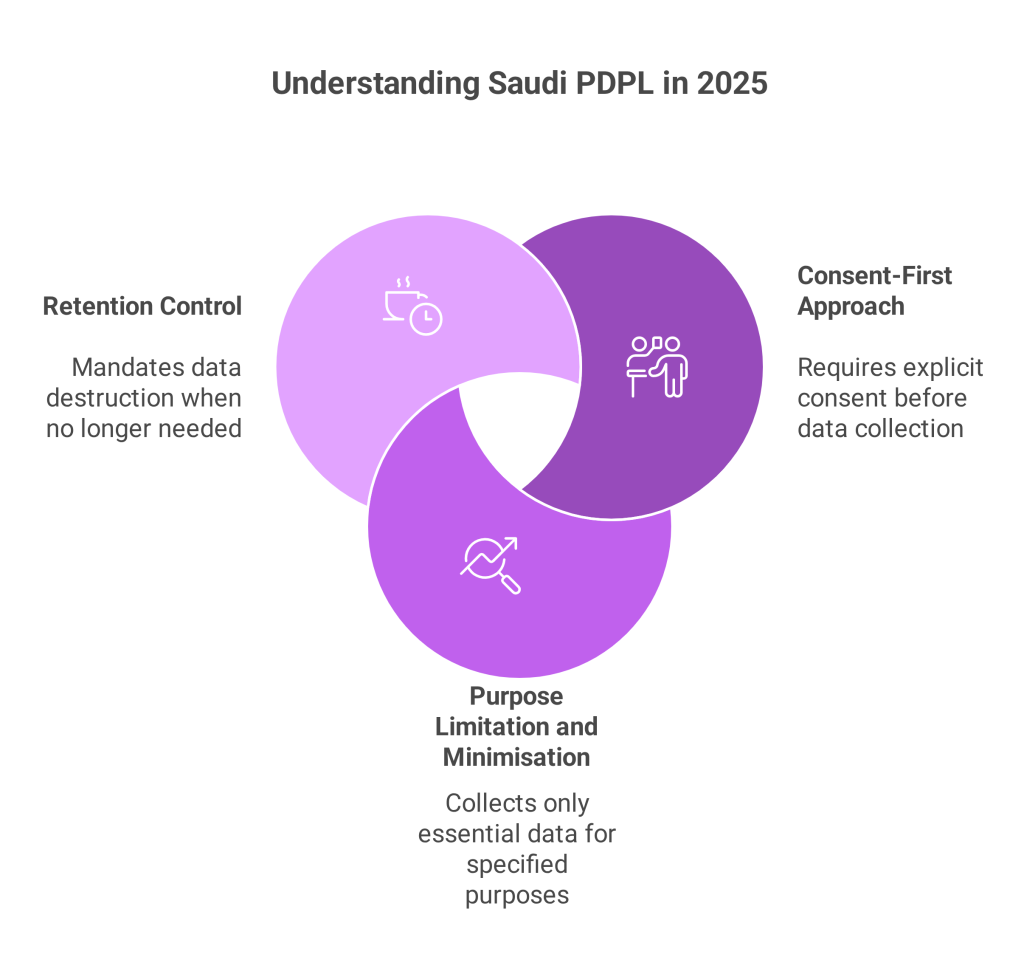
Key Compliance Requirements for PDPL Automation in Saudi Arabia
A thorough PDPL breakdown reveals the law’s holistic approach to compliance:
- Data Subject Rights: Individuals can access, correct, or request the deletion of their personal data. Controllers must respond within 30 days.
- Cross-Border Data Transfers: Transfers outside the Kingdom require SDAIA-approved safeguards, such as Standard Contractual Clauses (SCCs) or a Transfer Impact Assessment (TIA) if exceptions apply.
- Mandatory DPO Appointments: Organisations handling sensitive or large-scale data must appoint a Data Protection Officer to oversee compliance.
- Breach Notification Protocols: In case of data leaks or unauthorised access, both the competent authority and affected individuals must be notified.
Organisations must also register with SDAIA if they process high-risk data or handle sensitive information like health or credit data. These measures are shaping a region-wide shift toward data integrity and accountability.

Strategic Risks and Penalties
Failure to comply comes with consequences. The PDPL outlines escalating penalties:
- Fines up to SAR 5 million for general non-compliance.
- Up to two years’ imprisonment and SAR 3 million fines for unlawfully disclosing sensitive data.
- Repeat offences can double these penalties, including public disclosure of violations in local media.
Companies that neglect their compliance obligations face financial risk, potential brand damage, and operational disruption. The PDPL regulation analysis reveals a regulatory landscape that is not just reactive but actively enforcing data ethics.
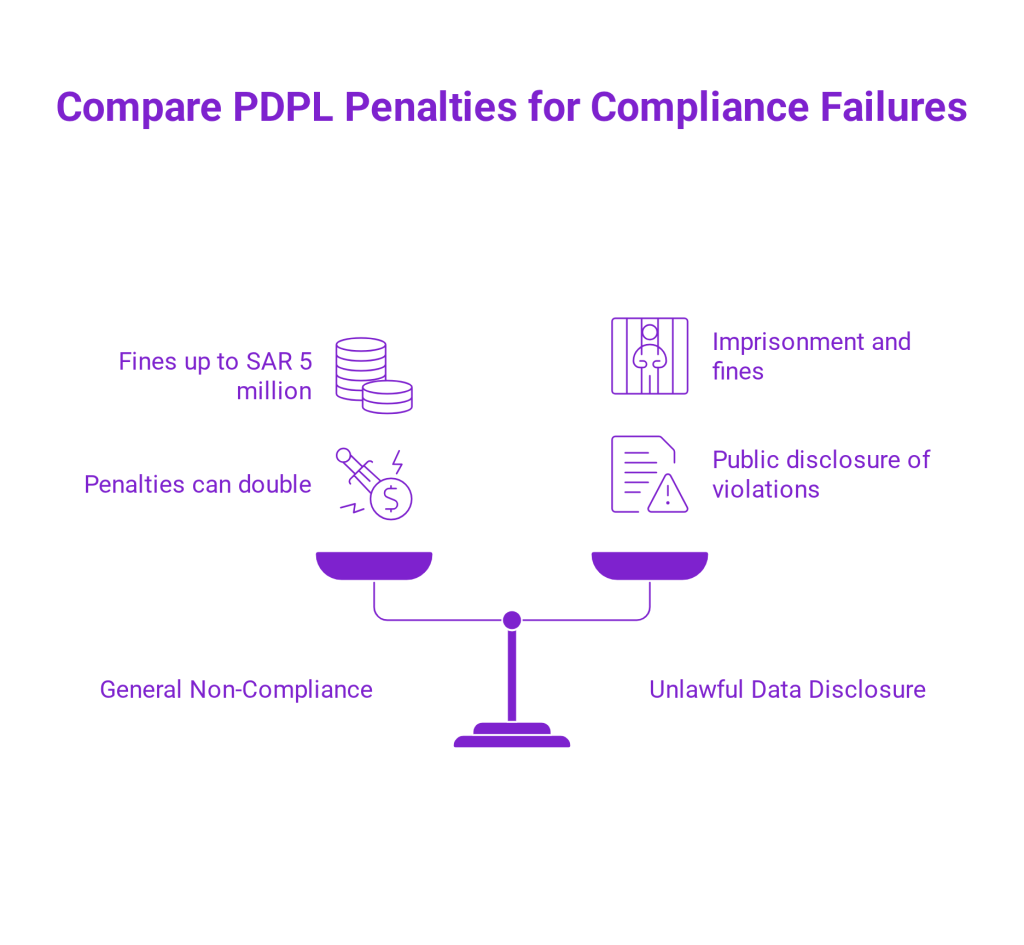
Sahl: Automating Compliance Where It Matters Most
The PDPL’s operational demands, from consent documentation to cross-border risk assessments, require more than manual checklists. Businesses need scalable solutions, and Sahl stands out.
Sahl empowers organisations to:
- implement PDPL automation in Saudi Arabia by automating data subject requests with fast, auditable workflows.
- Generate and maintain compliance documentation that satisfies SDAIA’s record-keeping standards.
- Perform automated Transfer Impact Assessments (TIAs) to assess legal, technical, and jurisdictional risks.
- Implement DPO dashboards to centralise tasks, training, and breach response protocols.
In a region where regulatory complexity varies across sectors and borders, Sahl offers a unified solution built for Middle Eastern compliance from the ground up.
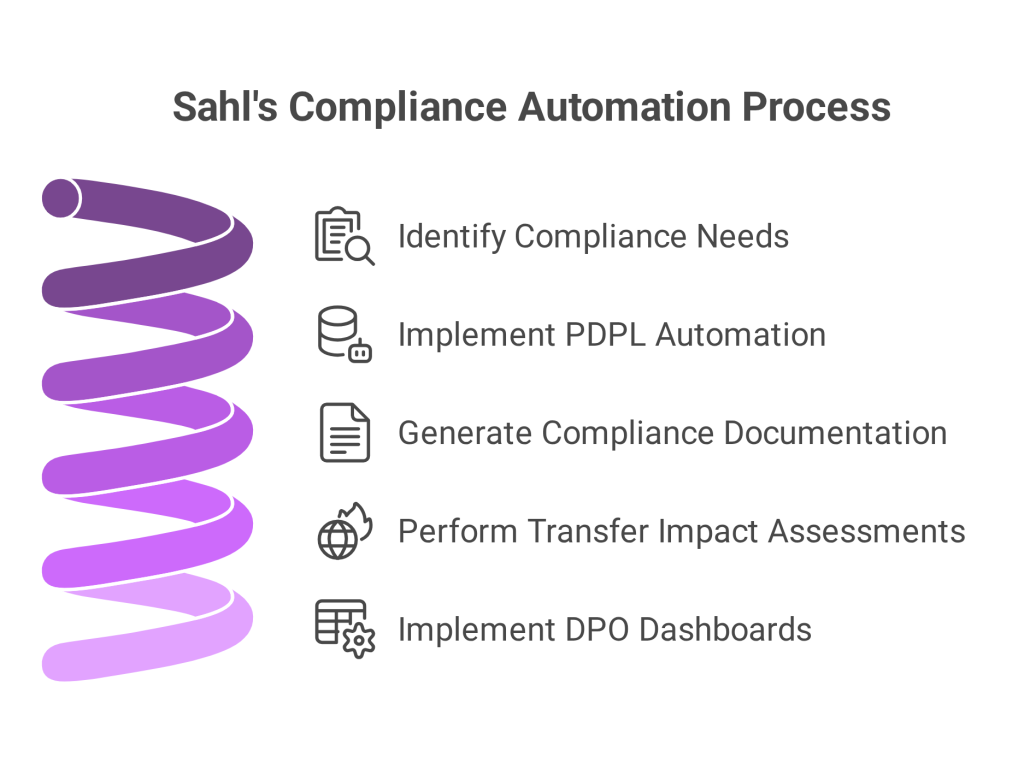
Why PDPL Matters Beyond Legal Risk
The PDPL is not just about avoiding penalties. It is about building trust, brand credibility, and market resilience. Organisations prioritising ethical data handling gain a competitive edge in a region where customer awareness of data rights is rising.
Moreover, with rising scrutiny of AI governance, cross-border data transfers, and cybersecurity, the PDPL sets the stage for Saudi Arabia to be a leader rather than a participant in global privacy innovation.
As more businesses recognise that data protection is brand protection, tools like Sahl are helping transform regulatory obligations into strategic assets.
Why PDPL Automation in Saudi Arabia Is a Competitive Advantage
The Saudi PDPL marks a definitive shift in the Middle East’s regulatory posture. As enforcement matures and SDAIA expands its oversight, compliance is no longer optional; it is foundational.
Innovative businesses are not just meeting the PDPL, they are mastering PDPL automation in Saudi Arabia to lead in a region where data defines trust. With Sahl at the forefront, organisations can automate compliance, reduce risk, and lead confidently in a region where data defines trust and trust defines success.

